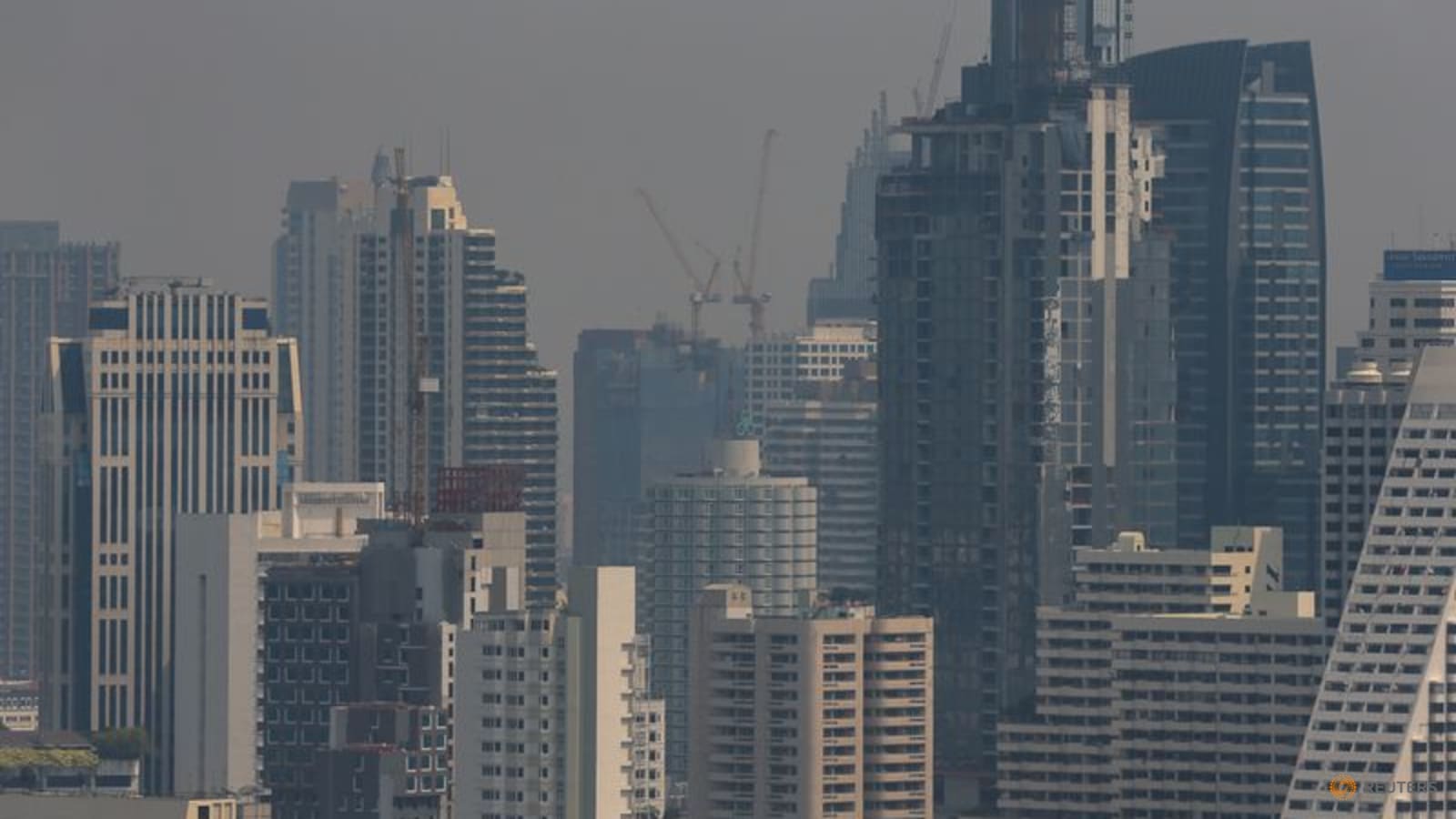BANGKOK: The air quality in Bangkok has hit unhealthy levels with residents in the Thai capital and nearby provinces advised to avoid or reduce outdoor activities on Friday and Saturday, according to the Bangkok Metropolitan Administration (BMA) on Thursday (Jan 26).
In a statement on Facebook, BMA’s Environment Department said unhealthy levels of air pollutant PM2.5 are forecasted on those days.
“The public is encouraged to plan their work and activities. Particularly in areas where the air quality reaches levels that can or will impact health, it is advisable to cut down on or avoid outdoor activities,” said the department.
It added that if outdoor activities are necessary, face masks are recommended to be worn.
According to BMA, unhealthy levels of PM2.5 are also expected in Bangkok and its vicinity on Jan 31 and Feb 1 due to stagnant weather conditions.
PM2.5 is one of the deadliest forms of air pollution – tiny particles with a diameter of less than 2.5 micrometres or about 3 per cent the diameter of a human hair.
This means they can penetrate deep inside the lungs, where they either remain for long periods or pass into the bloodstream unfiltered. Long-term exposure to these particles can result in cardiovascular and respiratory diseases, and cancers.
Environmental adviser to the governor of Bangkok Pornprom Vikitsreth said this year, BMA has integrated more proactive strategies to address the air pollution problem. Commuters are encouraged to use public transport more often, especially when PM2.5 levels are harmful, he added.
“We have a network with the private sector and we have asked them to join the work-from-home campaign. So far, 11 companies have participated,” Mr Pornprom said in a press conference on Wednesday.
PM2.5 is a recurring problem in Thailand and usually occurs in winter, according to Pansak Thiramongkol, director of the Air Quality and Noise Management Bureau at the Pollution Control Department.
“The problem will stay with us until April. This year, our meteorological forecast showed that drought will be more severe than the year before, and this is a factor that could worsen the situation of PM2.5,” he said on Wednesday.
“The worst period, based on what we’ve monitored, would be in February,” he added.
A survey by the Public Health Ministry showed a nationwide increase in patients suffering from respiratory diseases, skin diseases and eye inflammation over the past three weeks.
According to Dr Ekachai Piensriwatchara, deputy director-general of the Health Department, the number of patients suffering from air pollution went up by about 90,000 in January from 110,000 last month.
“Most of the affected patients – 60 per cent – were the elderly, those with medical conditions and young children,” said Dr Ekachai.
Symptoms range from mild such as runny nose to severe, which include difficulty in breathing, exhaustion and tightness in the chest.
Dr Ekachai added that the Public Health Ministry has advised people in the vulnerable group such as pregnant women, young children and those with medical conditions to stay at home if they reside in areas with unhealthy levels of PM2.5. As for those who need to work, he said they can opt for working from home.

